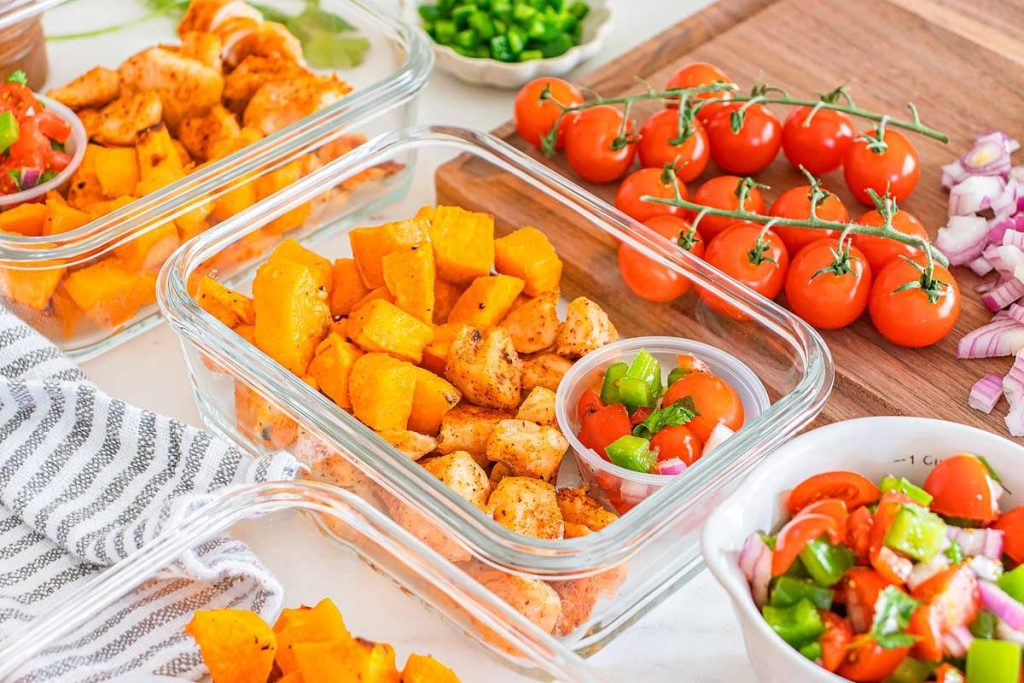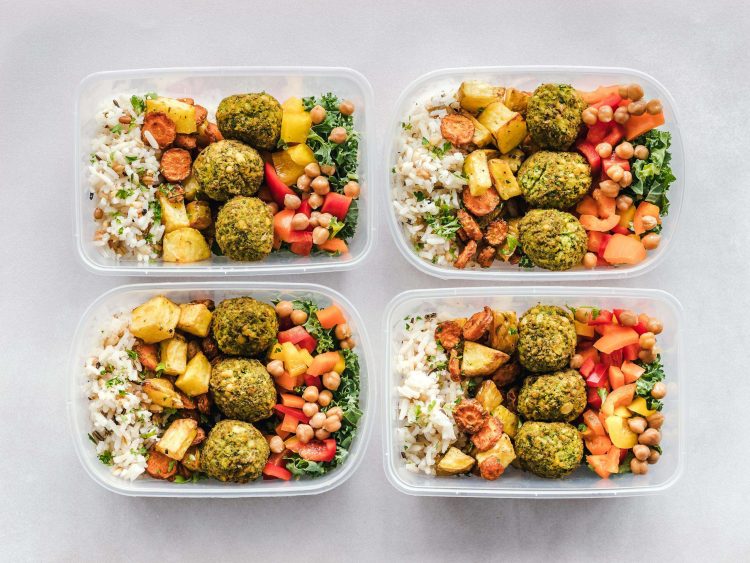In an age where convenience reigns supreme and Uber Eats is just a swipe away, the idea of spending hours planning, chopping, and cooking might sound like a chore. But what if meal prepping could be more than just a time-saving strategy? What if it became your new favorite hobby—an anchor for your week, a calming ritual, a creative outlet, and a tool for improving your physical and emotional well-being? While meal prep is often praised for its practicality, its therapeutic potential is frequently overlooked. Done right, weekly meal prepping can transform from a survival tactic into a deeply rewarding lifestyle enhancer.
The Therapeutic Power of Routine
There’s something profoundly grounding about routine. In a world that feels increasingly unpredictable, the act of planning and preparing your meals is one of the few areas where you have complete control. Each step—writing a grocery list, browsing recipes, measuring ingredients—anchors you in the present moment. It’s a meditative practice disguised as a productive task. For those who struggle with anxiety or decision fatigue, meal prep offers mental relief by eliminating hundreds of micro-decisions during the week. Knowing your food is ready and balanced means you can reclaim cognitive bandwidth for other areas of life—like work, family, or self-care.
The Joy of Creation
Cooking is a creative endeavor. Meal prepping lets you channel your inner artist, experimenting with spices, colors, and textures. Designing a week’s worth of meals that look good, taste great, and feel nourishing can be as satisfying as painting a canvas or composing a song. The act of arranging a rainbow-hued quinoa bowl or layering overnight oats with berries and chia is visual therapy. It invites a sense of pride and joy in nourishing yourself intentionally. When you open the fridge and see a collection of vibrant, prepped meals, it’s like curating your own personal food gallery.
Mood-Boosting Foods, Mood-Boosting Ritual
Certain foods are known to support mental health—think omega-3-rich salmon, magnesium-packed leafy greens, or mood-lifting berries. By incorporating these into your meal prep, you’re not only feeding your body, but actively supporting your emotional well-being. Meal prepping also removes the “hanger” factor, ensuring your blood sugar stays stable and your mood doesn’t crash mid-afternoon. Taking time each week to nourish yourself through food becomes a ritual of self-love, one that boosts mood, clarity, and confidence. Over time, this small habit can have big ripple effects on your daily resilience and mindset.
Stress Less, Eat Better
One of the major causes of poor nutrition isn’t lack of knowledge—it’s lack of planning. When you’re stressed, tired, or short on time, you’re more likely to reach for processed snacks, order fast food, or skip meals entirely. Meal prep acts as a buffer against those moments. It empowers you to make healthy choices even when your energy is low. Having balanced meals ready to go means you won’t spiral into late-night takeout guilt or blood-sugar crashes. You remove the temptation by removing the chaos. Your future self will thank you for thinking ahead.
Budget-Friendly and Waste-Reducing
Meal prepping is not only good for your health—it’s good for your wallet and the planet. Planning meals reduces the urge for spontaneous spending and helps you buy only what you need. You’re more likely to use your ingredients fully, minimizing food waste. You can batch cook large portions and repurpose leftovers in creative ways—think roasted veggies turned into wraps, stir-fries, or soups. By reducing packaging from takeout and cutting down on discarded food, meal prep becomes an eco-conscious habit with tangible results.
From “Ugh, Meal Prep” to “Meal Prep Sunday!”
The key to transforming meal prepping from a dreaded obligation to a cherished hobby lies in reframing. It starts with intention. Instead of rushing through it, carve out a dedicated time slot—perhaps Sunday afternoon—with your favorite playlist, podcast, or show in the background. Light a candle. Sip on something cozy. Make the experience enjoyable. Use tools and containers that spark joy—glass jars, colorful lunchboxes, aesthetically pleasing prep bowls. Involve your partner, kids, or roommates to turn the task into a shared ritual. Take photos of your creations. Share your process on social media if that motivates you. Turn your kitchen into your personal studio, and meal prepping into a celebration rather than a chore.
Creative Meal Prep Themes for Every Mood
To keep things interesting, consider adding a theme to your weekly meal prep. This brings a sense of novelty and fun, much like theme nights at a favorite restaurant.
- Mood-Boost Week: Focus on ingredients like turkey (tryptophan), dark chocolate (antioxidants), bananas (vitamin B6), and avocados (healthy fats).
- Mediterranean Magic: Hummus, tabbouleh, grilled fish, roasted eggplant, olives, and whole grains.
- Comfort in a Bowl: Wholesome soups, stews, and Buddha bowls with cozy spices like cinnamon and cumin.
- Plant-Based Power: All vegetarian meals with legumes, nuts, seeds, and colorful veggies.
- Global Exploration: Choose a country and prep meals inspired by their cuisine—Thai curries, Japanese bento boxes, or Indian dals.
Themes give your prepping structure and excitement, helping avoid food fatigue while enriching your palate.

Meal Prep and Mindful Eating
When you prep meals yourself, you gain a deeper appreciation for what goes into your body. You become more attuned to portion sizes, ingredients, and flavors. This naturally leads to mindful eating—slowing down, chewing thoroughly, and enjoying food with presence. You notice how different meals affect your mood and energy, which empowers better choices moving forward. Meal prepping doesn’t just change your week—it recalibrates your relationship with food.
Time Investment, Life Return
Yes, meal prepping takes time—but it gives far more in return. The hours you spend chopping and portioning on a Sunday can save you from decision fatigue, rushed mornings, unhealthy dinners, and expensive food delivery. You regain control over your nutrition, routine, and schedule. You build confidence in your cooking skills, learn more about your body’s needs, and gain a sense of accomplishment every time you reach into your fridge. It’s one of the rare hobbies that touches every area of your life—physical, mental, emotional, financial, and environmental.
Meal Prep Tips for Newbies
If you’re just starting, keep it simple. Don’t try to prep a five-course menu for each day of the week. Choose two proteins, two complex carbs, and a variety of roasted or raw vegetables. Prepare items that can mix and match easily. For example:
- Roasted chicken breast
- Quinoa or brown rice
- Roasted broccoli and bell peppers
- Hard-boiled eggs
- A big mixed salad with dressing on the side
- Overnight oats or chia pudding for breakfast
- Homemade hummus with carrot and cucumber sticks
Batch cook soups or chili in a slow cooker. Pre-cut fruits for smoothies. Portion snacks like nuts or trail mix. Keep flavor enhancers (salsas, tahini dressings, pesto) on hand to spice things up throughout the week. Start with prepping for just three days, then expand once you find your rhythm.
The Emotional Satisfaction of Self-Nourishment
When you meal prep, you send yourself a clear message: I matter. I deserve to be nourished. I am worth the time and effort it takes to care for myself. This emotional reinforcement builds confidence, self-respect, and motivation. It’s a way of showing up for yourself—even when no one else is watching. And over time, that quiet commitment accumulates into visible transformation—not just in your body, but in your energy, mood, and self-belief.
Conclusion: Prep to Thrive, Not Just Survive
Meal prepping isn’t just about eating better—it’s about living better. When approached with care, creativity, and intention, it becomes a powerful hobby that blends wellness, organization, artistry, and emotional support. Whether you’re managing a busy career, raising a family, or simply trying to feel better in your body, the humble act of preparing your meals can be your most impactful weekly ritual. So light a candle, tie on your apron, and start chopping. Your future self is already smiling.

















































